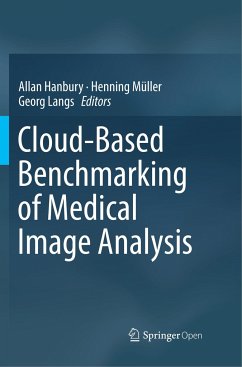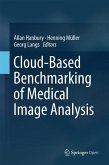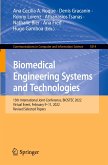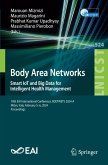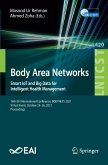This book is open access under a CC BY-NC 2.5 license.
This book presents the VISCERAL project benchmarks for analysis and retrieval of 3D medical images (CT and MRI) on a large scale, which used an innovative cloud-based evaluation approach where the image data were stored centrally on a cloud infrastructure and participants placed their programs in virtual machines on the cloud. The book presents the points of view of both the organizers of the VISCERAL benchmarks and the participants.
The book is divided into five parts. Part I presents the cloud-based benchmarking and Evaluation-as-a-Service paradigm that the VISCERAL benchmarks used. Part II focuses on the datasets of medical images annotated with ground truth created in VISCERAL that continue to be available for research. It also covers the practical aspects of obtaining permission to use medical data and manually annotating 3D medical images efficiently and effectively. The VISCERAL benchmarks are described in Part III, including a presentation and analysis of metrics used in evaluation of medical image analysis and search. Lastly, Parts IV and V present reports by some of the participants in the VISCERAL benchmarks, with Part IV devoted to the anatomy benchmarks and Part V to the retrieval benchmark.
This book has two main audiences: the datasets as well as the segmentation and retrieval results are of most interest to medical imaging researchers, while eScience and computational science experts benefit from the insights into using the Evaluation-as-a-Service paradigm for evaluation and benchmarking on huge amounts of data.
This book presents the VISCERAL project benchmarks for analysis and retrieval of 3D medical images (CT and MRI) on a large scale, which used an innovative cloud-based evaluation approach where the image data were stored centrally on a cloud infrastructure and participants placed their programs in virtual machines on the cloud. The book presents the points of view of both the organizers of the VISCERAL benchmarks and the participants.
The book is divided into five parts. Part I presents the cloud-based benchmarking and Evaluation-as-a-Service paradigm that the VISCERAL benchmarks used. Part II focuses on the datasets of medical images annotated with ground truth created in VISCERAL that continue to be available for research. It also covers the practical aspects of obtaining permission to use medical data and manually annotating 3D medical images efficiently and effectively. The VISCERAL benchmarks are described in Part III, including a presentation and analysis of metrics used in evaluation of medical image analysis and search. Lastly, Parts IV and V present reports by some of the participants in the VISCERAL benchmarks, with Part IV devoted to the anatomy benchmarks and Part V to the retrieval benchmark.
This book has two main audiences: the datasets as well as the segmentation and retrieval results are of most interest to medical imaging researchers, while eScience and computational science experts benefit from the insights into using the Evaluation-as-a-Service paradigm for evaluation and benchmarking on huge amounts of data.

